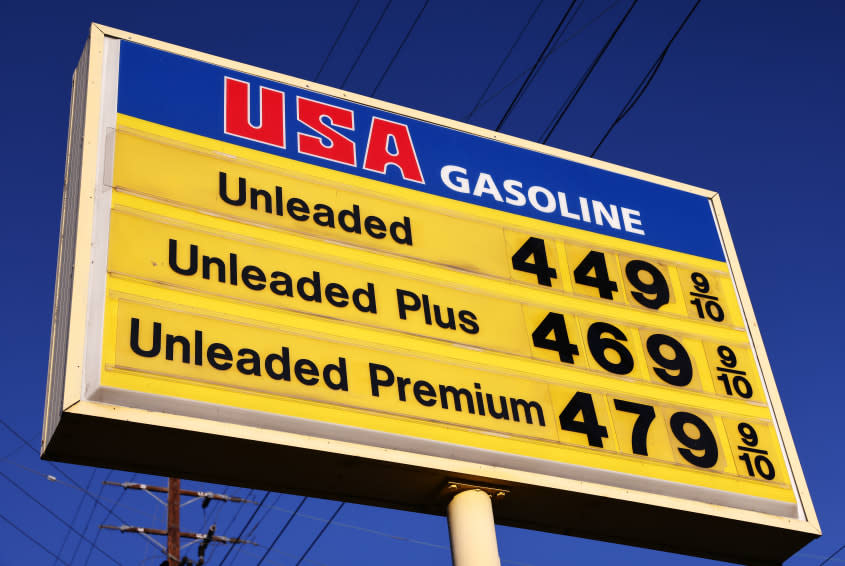Gas prices create political strain for Biden

The smartest insight and analysis, from all perspectives, rounded up from around the web:
With prices at the pump skyrocketing, the Biden administration this week announced the release of 50 million barrels of oil from the U.S. Strategic Petroleum Reserve, said Lauren Egan and Shannon Pettypiece in NBCNews.com. Since its establishment in the 1970s, "only three presidents have directed the sale of oil from the Strategic Petroleum Reserve." While the release will not have dramatic immediate effects, it signals to foreign producers that the U.S. is serious about forcing down oil prices. The surging cost of gas has set off "political alarm bells within the White House," said Ari Natter and Jennifer Epstein in Bloomberg. "Presidents have little control over what consumers pay at the pump," but gas prices are often seen "as the most visible form of inflation."
The U.S. has already been looking aggressively to cut fuel costs and pointing the finger at U.S. oil companies. Last week, Biden asked the Federal Trade Commission to probe "potentially illegal conduct" in U.S. gasoline markets. The letter said Biden had noted "the difference between the cost of wholesale fuel," which has retreated slightly in recent weeks, "and pump prices," which remain higher than at any point since 2014. Massive investments in drilling made the U.S. "the king of the oil world" last decade, but "the strategy was terrible for the oil industry's bottom line," said Matt Egan in CNN. Now U.S. producers are reluctant to ramp up quickly. They want to add supply gradually, while returning more profits to shareholders, so U.S. oil production remains 14 percent below what it was in 2019. Meanwhile, American families are feeling the squeeze, said Emma Goldberg in The New York Times. "The national average for a gallon of gas is $3.41, which is $1.29 more than it was a year ago." It's not quite like the days of gas lines in the 1970s, but rising costs are causing more people to rethink their household budgets. Just 32 percent said they planned to drive for Thanksgiving this year, compared with 65 percent in 2019.
The U.S. could already be producing more oil, said David Harsanyi in the National Review. But "it has been Democrats' policy and stated goal for over a decade to spike fossil-fuel prices to depress use and save the planet." Democrats have done all they could to discourage production, and these problems get worse in the future. On the first day of his presidency, "Biden rejoined the Paris Agreement and revoked permits to build the Keystone XL pipeline." He has since "signed a slew of executive orders" halting new drilling. That's simply not fair, said Nicolás Rivero in Quartz. Today's prices don't have a lot to do with long-term oil-production plans. Last year, "demand for automotive gasoline tanked" because of Covid, and prices at the pump plunged to less than $2 a gallon. "Fearing that gasoline demand might never return, some refiners permanently shut down plants." But as vaccines have rolled out and the worst of the pandemic has receded, demand has almost fully recovered. As refiners bring more capacity online through the next year, prices will naturally fall, potentially alleviating the pain at the pump — as well as Biden's political headache.
This article was first published in the latest issue of The Week magazine. If you want to read more like it, you can try six risk-free issues of the magazine here.

 Yahoo Finance
Yahoo Finance 